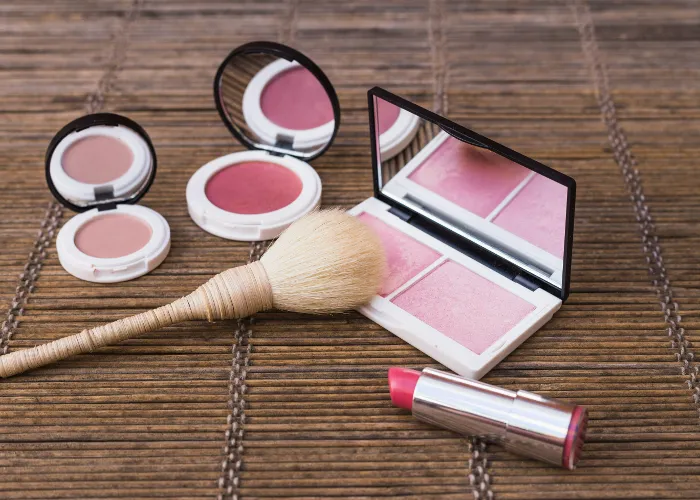How to Find the Best Blush for Sensitive Skin

Introduction
Finding the right blush can be a game-changer for achieving a healthy, radiant complexion—especially if you have sensitive skin. With countless options on the market, selecting a blush that enhances your look without causing irritation can feel overwhelming. Sensitive skin demands special consideration, particularly regarding ingredient sensitivity, formulation, and texture. In this blog post, we’ll guide you through how to find the best blush for sensitive skin and provide a curated list of the top 10 blushes, including their pros and cons.
Understanding Sensitive Skin and Blush
Sensitive skin reacts more readily to environmental changes, harsh ingredients, or abrasive textures. For this reason, it’s essential to choose blushes that are free from common irritants such as artificial fragrances, parabens, and sulfates. Additionally, formulations that offer gentle, non-comedogenic ingredients are ideal for avoiding flare-ups and maintaining skin health.
Criteria for Choosing the Best Foundation for Sensitive Skin
Selecting the right foundation for sensitive skin requires careful consideration to ensure that your choice enhances your complexion without causing irritation or flare-ups. Here are some key criteria to guide you in choosing the best foundation for sensitive skin:
1. Ingredients
Hypoallergenic:
Opt for foundations labeled as hypoallergenic to minimize the risk of allergic reactions and irritation.
Free from Irritants:
Avoid products with known irritants such as synthetic fragrances, parabens, sulfates, and alcohol. Look for foundations with soothing, non-toxic ingredients.
Dermatologist-Tested:
Foundations that are dermatologist-tested are often safer for sensitive skin, as they are formulated with extra care to reduce the risk of adverse reactions.
2. Texture and Finish
Gentle Formulation:
Choose foundations with a lightweight, breathable texture. Heavy, thick formulas can clog pores and exacerbate sensitivity.
Non-Comedogenic:
Ensure the foundation is non-comedogenic (won’t clog pores), which is particularly important for sensitive skin that is prone to breakouts.
Finish:
Opt for a finish that suits your skin type. Matte finishes can be great for oily skin, while dewy finishes can add hydration to dry or sensitive skin. Choose a finish that enhances your skin’s natural look without causing discomfort.
3. Coverage
Buildable Coverage:
A foundation with buildable coverage allows you to customize the amount of coverage you need without applying a heavy layer. This can help avoid irritation and maintain a natural appearance.
Avoid Full Coverage:
For sensitive skin, full-coverage foundations may be too heavy and can increase the risk of irritation. Light to medium coverage options are often more suitable.
4. Allergen Testing
Patch Testing:
Before committing to a new foundation, perform a patch test to check for any adverse reactions. Apply a small amount of product on a discreet area of your skin and wait 24 hours to see if any irritation occurs.
Sensitivity Testing:
Choose foundations that are tested for sensitivity, especially if you have highly reactive skin.
5. Skin Type Compatibility
Hydrating Ingredients:
For dry or sensitive skin, select foundations with hydrating ingredients like hyaluronic acid or glycerin to keep your skin moisturized and comfortable.
6. Brand Reputation
Reputable Brands:
Choose foundations from reputable brands known for their commitment to gentle, high-quality formulations. Brands with a strong focus on skincare and sensitive skin solutions are often a safer choice.
7. Texture and Application
Ease of Application:
Consider how the foundation applies to your skin. Creams and liquids are generally more hydrating and easier to blend, while powders can be less irritating for some people but might exacerbate dryness.
Application Tools:
Use tools such as clean brushes, sponges, or fingers to apply foundation. Avoid using dirty tools that can harbor bacteria and irritate sensitive skin.
8. Fragrance-Free
Avoid Fragrances:
Fragrance-free foundations are less likely to cause irritation or allergic reactions. Fragrances can be a common irritant, so choosing products without added scents is generally safer for sensitive skin.
By considering these criteria, you can find a foundation that not only provides the coverage and finish you desire but also keeps your sensitive skin comfortable and irritation-free. Selecting the right product is essential for maintaining healthy, beautiful skin while minimizing the risk of adverse reactions.
Conclusion
Choosing the best blush for sensitive skin involves more than just selecting a shade—it’s about finding a formula that soothes and enhances your complexion without causing irritation. By focusing on natural and hypoallergenic ingredients, you can enjoy a radiant, healthy look.


🗨️ Reader Comments